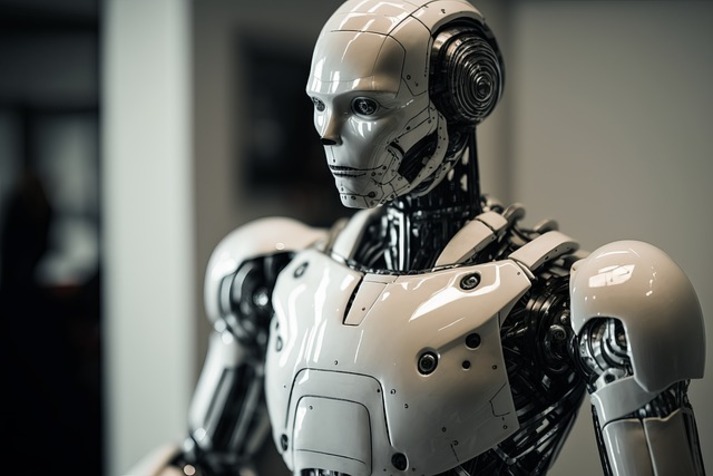
Video games and AI : what you need to know
Artificial intelligence is revolutionising video games by allowing players to experience stimulating situations. It enables computers to behave reactively and judiciously for different characters and circumstances.
Discovering AI in the world of video games
These days, AI is being used for a wide range of purposes in games. These range from creating clever virtual opponents to improving the game itself and interaction with NPCs or non-player characters.
Among the many applications of AI in video games is the creation of intelligent and responsive virtual opponents. These AI opponents have the ability to make spontaneous decisions, adapt to player behavior and offer stimulating challenges.
AI is also used to create realistic NPCs. These virtual characters are believable and interactive thanks to their ability to respond to human emotions. Players can interact with these NPCs in a variety of ways. They can provide information, carry out missions and even act as intermediaries.
However, AI is used in procedural content generation, offering the possibility of creating dynamic environments, levels or scenarios. This capability allows developers to generate funds automatically. AI also has the ability to adapt gameplay to suit the user.
The influence of AI on the gaming experience
AI has a significant impact on the gaming experience, delivering dynamic and compelling experiences.
As an opponent, AI is able to create more intelligent and responsive enemies. Controlled by AI, these opponents are able to analyze the user’s behavior and adapt their actions accordingly.
The AI also plays the role of virtual ally in the form of skilled teammates. These AI-controlled characters support and help the player in his quest. They are capable of acting autonomously and responding more intelligently. The impact of AI on the playability of video games is therefore considerable.
AI as a collaborator and teammate in games
The integration of AI into games is currently surpassing designers’ initial expectations.
In various games, users can collaborate with so-called autonomous AI partners. These NPCs can be allies, helping players on quests or in combat. Thanks to advanced AI models, these virtual sidekicks have the ability to make ingenious decisions, adapt to different situations and even assimilate the player’s actions. This technique creates a realistic gaming environment, where users can rely on their AI comrades to support them intelligently and interact fluidly.
In some particularly multiplayer online role-playing games, where each player can form teams with NPCs equipped with highly scalable AI. These NPCs have particular roles, such as being healers or tanks, and even collaborating with players to triumph in complex quests. This area of AI use distinctively enhances the player experience, providing solid assistance and almost natural interaction.
AI is also used to create NPCs with diverse personalities and almost human-like emotional reflexes. These virtual characters are able to interact spontaneously with users by responding to their actions, carrying on conversations and displaying emotions. This technique ensures involvement in the game and helps to create edifying bonds between players and their AI sidekicks.
The AI, seen as a partner in the game, has access to new and exciting adventures. NPCs with advanced AI models are making amazing progress, giving players the chance to experience rewarding adventures alongside intelligent virtual allies. Thanks to the constant evolution of AI, more immersive games and unparalleled experiences are still to come.
The challenges and limitations of AI in video games
Despite technological advances in the field of AI, it presents both challenges and limitations, especially in video games. Limits that need to be taken into account in order to achieve ideal gaming experiences. These challenges are linked to the technical aspects, decision-making capabilities and current limitations of AI.
Video games require significant computing power to create sophisticated AI. AI algorithms require significant hardware and software resources, which places constraints on the success and fluidity of the game. Optimising AI to run efficiently on a variety of platforms remains a challenge for developers.
Another challenge lies in the AI’s ability to make reasonable and intelligent decisions. Algorithms that can learn from natural human behaviour, adapt to user actions and provide contextually appropriate responses need to be created. It is important for AI to be able to react in a credible and fluid way, in order to keep players engaged.
AI in video games still has some limitations. AI behaviours can appear predictable or iterative, which could reduce the challenge and excitement for experienced gamers. In addition, AI has difficulty understanding diverse contexts and adapting to complex social relationships, which frames its ability to create more realistic and authentic non-gamer characters.
Despite these challenges and limitations, there are promising prospects for the future of AI in video games. Recent developments such as reinforcement learning offer ‘AI the ability to improve its performance by adapting to environments and adapting to complex interactions with players. New technologies aim to make AI more progressive, more open and more human.
The technical challenges, decision-making capabilities and current limitations of AI are all important aspects to consider in video games. Nevertheless, despite these obstacles, AI continues to evolve and provide exciting prospects for creating more exciting gaming experiences in the future.











